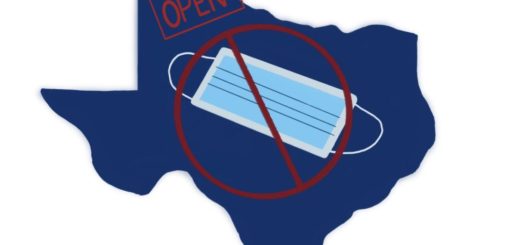We must adapt to a new normal
 Johanna Selmeczy | Conant Crier
Johanna Selmeczy | Conant Crier
Tragedy sparks human adaptation. We are genetically wired to learn from our past mistakes, in order to increase our odds of survival. This is natural selection in action: those who adapt pave the way for future generations, while those who refuse to learn are left behind.
So in the face of one of the worst pandemics in history, adaptability is integral to the wellbeing of humanity as a whole. One of the mottos of the United States, e pluribus unum, means “out of many, one,” and is extremely relevant today. We need to come together to support each other and adapt to a world that is more divided than ever.
In a perfect world, our leaders would respond to tragedies in a way that encourages adaptation and allows us to continue to grow as a society. In reality, the national leadership we have been looking to in the midst of this pandemic has been lacking, to say the least. It is unsurprising that adaptation is having a harder time finding purchase nowadays.
America is looking to our national government for support and guidance, and what we get in return are Twitter rants and maskless rallies. There is no national precedent set in terms of public health, leading to more than a fifth of the 50 states merely “encouraging” masks. This is inexcusable.
And yet, even in the states that have made masks mandatory, such as Illinois, there are those who refuse to follow the safety regulations put in place. Why is this the case? My hypothesis is that we have been lulled into a false sense of security. A sort of herd mentality where we assume that we are immune to contracting COVID-19 because it has become nearly normalized now.
Every day, tuning to the news, you’re almost guaranteed to see two things: the drama surrounding the upcoming presidential election and statistics regarding the coronavirus. We have been exposed to the pandemic for so long that we feel removed from it as if it’s happening to a distant relative we’ve never met.
The biggest issue with this mentality is that it creates an influx of asymptomatic super-spreaders. These are people who carry the virus but display no symptoms and spread it to a disproportionate number of people due to the misconception that they’re healthy.
As said by Dr. William Schaffner, a professor at Vanderbilt University School of Medicine, “Asymptomatic and mildly symptomatic transmission are a major factor in transmission for Covid-19. They’re going to be the drivers of spread in the community.”
It is imperative that we take the necessary precautions to limit the spread of coronavirus as much as possible. It may feel like too little too late, but it is the responsibility of those with fully functioning immune systems to protect those who are immunocompromised.
9/11 led to major reform in airport security. The Haiti Earthquake revealed corruption in peacekeepers responding to the disaster. The Ebola outbreak bolstered international support towards researching treatments and vaccines.
What will the coronavirus pandemic lead to? Will America become an example of what not to do? We certainly don’t seem to be paving the way for generations to come. A time where science is being contradicted by national leaders is a worrying time indeed.
Where the findings of the Center for Disease Control (CDC) are being called into question in the midst of a global pandemic. Where some groups believe that the devastation brought on by COVID-19 is a government conspiracy created by the far left. Where wearing a mask is something that is still optional in multiple states.
This is a critical time in American history, where we all need each other more than ever in order to protect our most vulnerable.
And yet, there are those who refuse to adapt.
Normalcy is inherently temporary. Routines we establish for ourselves can be completely upended in the blink of an eye. So why do we cling to this idea that everything will go back to normal even though we know that isn’t the case?
The answer is simple: Normalcy provides us with security. Fear and uncertainty plague us every day, and the idea that there is some sort of guaranteed security awaiting us in the future is comforting, although inaccurate.
This is not to say that feeling comforted by the idea of going back to a pre-COVID world is bad. I myself have spent time reminiscing about what life was like before everything happened. But we must start living in the here and now, helping to save the lives of those most at risk and adapting to a new normal.
Conant English teacher Zak Zerby shared what he believes will certainly stay the same by the time this pandemic is over: “Our ability to persevere. It’s what we do, we go over it or under it or whatever, and I think we as a people will continue to plow through it.”
And so we will. We will continue to persevere, in spite of hardship and ignorance and hate, dragging ourselves inch by inch towards a brighter future.
So Conant students, staff, and parents, what is needed from you now is strength. Be flexible, be open-minded, and be together, if not physically then in spirit. Support one another, and remember to adapt.




Recent Comments